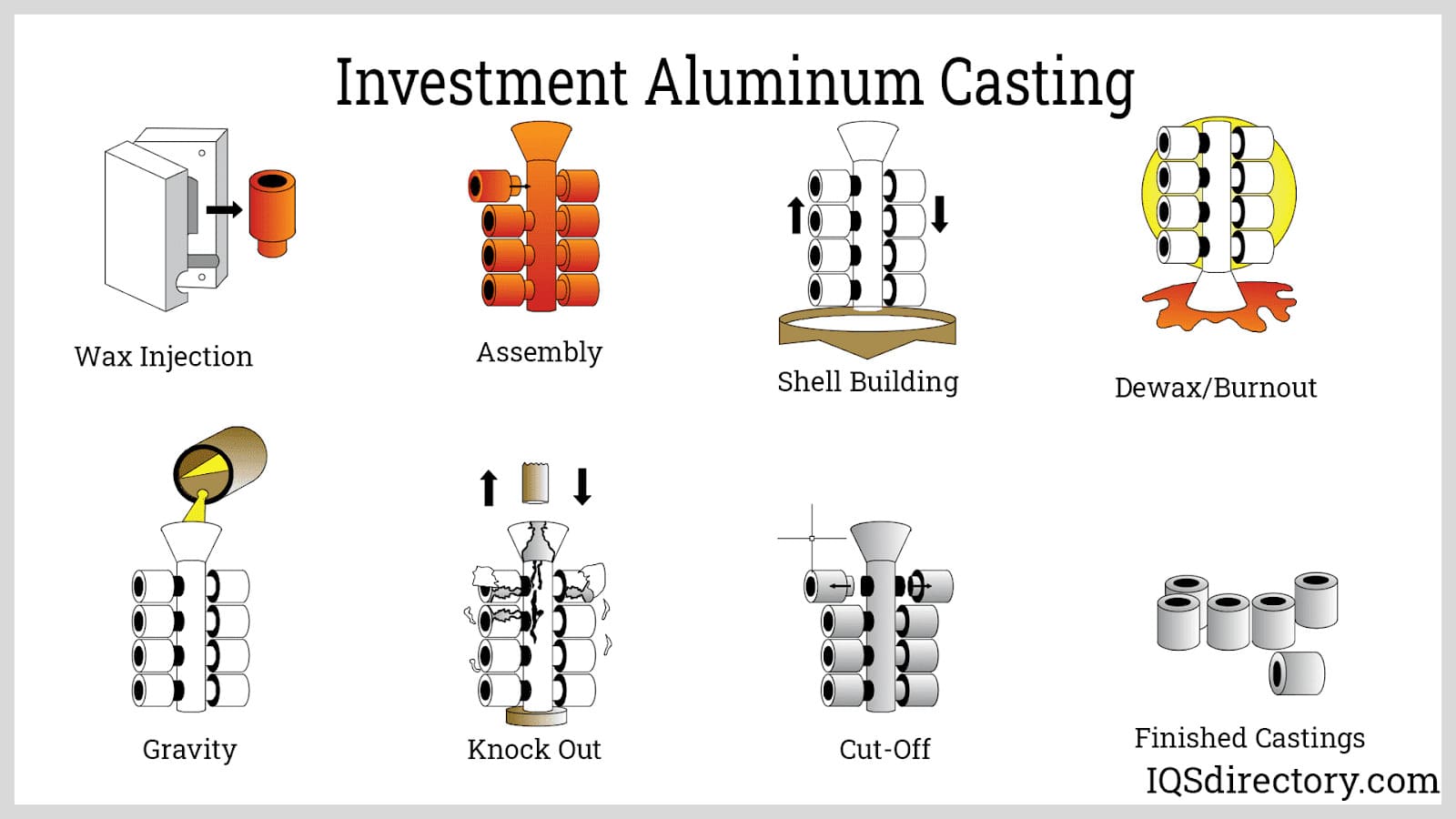Not known Facts About Stahl Specialty Company
Not known Facts About Stahl Specialty Company
Blog Article
Some Known Details About Stahl Specialty Company
Table of ContentsA Biased View of Stahl Specialty CompanyLittle Known Facts About Stahl Specialty Company.Stahl Specialty Company - QuestionsGet This Report on Stahl Specialty CompanyWhat Does Stahl Specialty Company Mean?
The subtle distinction exists in the chemical web content. Chemical Comparison of Cast Aluminum Alloys Silicon promotes castability by minimizing the alloy's melting temperature level and improving fluidity during casting. It plays an essential duty in allowing complex mold and mildews to be filled accurately. Furthermore, silicon contributes to the alloy's stamina and use resistance, making it useful in applications where resilience is vital, such as auto components and engine parts.It likewise enhances the machinability of the alloy, making it less complicated to process right into completed items. In this method, iron contributes to the general workability of aluminum alloys.
Manganese adds to the strength of light weight aluminum alloys and improves workability. It is generally made use of in wrought aluminum products like sheets, extrusions, and profiles. The visibility of manganese aids in the alloy's formability and resistance to cracking during fabrication procedures. Magnesium is a lightweight aspect that provides stamina and impact resistance to light weight aluminum alloys.
Zinc enhances the castability of aluminum alloys and assists regulate the solidification procedure throughout casting. It improves the alloy's stamina and solidity.
Stahl Specialty Company Can Be Fun For Anyone
Since aluminum-silicon alloys have great casting buildings, high gas buildings, simple processes, and excellent corrosion resistance, aluminum-silicon alloys are most commonly made use of in the die-casting sector in your home and abroad. At the same time, aluminum-silicon alloys are also reasonably very early and widely recognized alloys created and utilized in die-casting. After continuous study and renovation, most of the current global mainstream aluminum-silicon alloys have been finalized and are absolutely nothing more than A356, A360, A380, ADC12, B390, and A413.
The primary thermal conductivity, tensile toughness, yield toughness, and elongation vary. Among the above alloys, A356 has the highest possible thermal conductivity, and A380 and ADC12 have the most affordable.

Stahl Specialty Company Fundamentals Explained
In accuracy casting, 6063 is fit for applications where elaborate geometries and top quality surface area finishes are paramount. Instances include telecommunication rooms, where the alloy's superior formability enables for sleek and cosmetically pleasing designs while preserving structural stability. Similarly, in the Illumination Solutions sector, precision-cast 6063 elements develop stylish and effective illumination components that need intricate shapes and excellent thermal performance.
(https://penzu.com/p/140a5fda790a1044)
The A360 shows exceptional elongation, making it suitable for facility and thin-walled components. In precision casting applications, A360 is appropriate for markets such as Customer Electronic Devices, Telecommunication, and Power Devices.

In accuracy casting, light weight aluminum 413 shines in the Customer Electronic Devices and Power Equipment sectors. It's typically made use of to craft elaborate parts like smartphone real estates, camera bodies, and power device coverings. Its precision is impressive, with tight tolerances approximately 0.01 mm, guaranteeing perfect item assembly. This alloy's remarkable deterioration resistance makes it an outstanding selection for exterior applications, guaranteeing resilient, sturdy products in the pointed out sectors.
Everything about Stahl Specialty Company
The aluminum alloy you pick will significantly affect both the casting procedure and the residential properties of the final item. Due to the fact that of this, you should make your choice very carefully and take an educated strategy.
Determining the most appropriate light weight aluminum alloy for your application will imply considering a wide range of features. The first classification addresses alloy attributes that influence the manufacturing process.
The alloy you select for die spreading straight affects a number of facets of the spreading process, like how simple the alloy is to deal with and if it is prone to casting flaws. Warm splitting, also known as solidification fracturing, is a typical die casting problem for light weight aluminum alloys that can cause interior see page or surface-level rips or splits.
Stahl Specialty Company Fundamentals Explained
Particular aluminum alloys are more at risk to warm breaking than others, and your choice should consider this. Foundry near me. It can damage both the actors and the die, so you ought to look for alloys with high anti-soldering residential or commercial properties.
Deterioration resistance, which is currently a noteworthy attribute of light weight aluminum, can vary significantly from alloy to alloy and is a vital characteristic to take into consideration depending on the ecological conditions your item will be subjected to. Wear resistance is one more residential property commonly looked for in light weight aluminum products and can separate some alloys.
Report this page